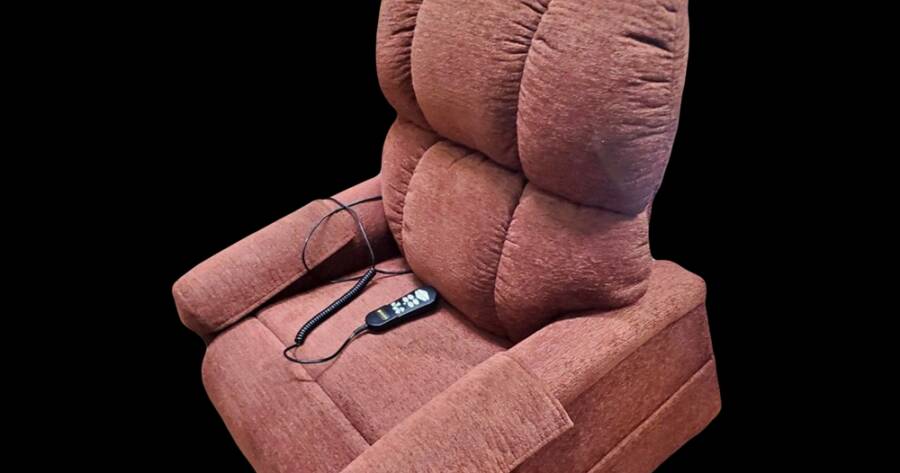As people age, mobility can become a challenge, making everyday activities like sitting and standing more difficult. Lift chairs offer a helpful solution by using powered mechanics to assist seniors in transitioning between seated and standing positions. While not all lift chairs are covered by Medicare, certain conditions may allow for partial reimbursement. This guide explores some of the best lift chairs available and offers insights on Medicare’s potential coverage.
What Are Lift Chairs and How Do They Work?
A lift chair looks similar to a regular recliner but comes with motorized capabilities that raise the seat to help users stand with ease. Many models feature remote control functions, adjustable settings, and various reclining options to enhance comfort. Seniors with arthritis, limited mobility, or chronic conditions often find these chairs essential for improving daily living.
Lift chairs are generally categorized into three types:
- 2-Position Lift Chairs: Limited reclining range, ideal for sitting upright or slightly back.
- 3-Position Lift Chairs: Offers greater flexibility, reclining almost flat but not fully.
- Infinite-Position Lift Chairs: Provides maximum customization, including the option to lie flat or elevate legs independently.
Understanding which type of chair fits a senior’s needs is key to selecting the right model.
Factors to Consider Before Buying a Lift Chair
Before purchasing a lift chair, it’s important to think through the following factors:
- Mobility Needs: Seniors with severe mobility issues may benefit from an infinite-position lift chair for added flexibility.
- Space: Some models require more room for reclining fully, while others are designed for compact spaces.
- Comfort and Materials: Cushioned support and breathable fabrics can improve comfort during prolonged use.
- Weight Capacity: Each chair comes with a specific weight limit, so choosing a model that matches the user’s needs is essential.
- Medicare Eligibility: If a senior’s doctor deems the lift mechanism “medically necessary,” Medicare Part B may cover part of the cost. However, Medicare typically covers only the lifting mechanism itself—not the entire chair.
Top Lift Chairs for Seniors in 2024
1. MedLift 5555 Full Sleeper Lift Chair
This infinite-position chair is highly regarded for its customization, with a full reclining capability that allows users to lie flat. Seniors with chronic pain or circulatory issues may find the independent footrest and backrest adjustments helpful. The chair is available in various sizes, ensuring a good fit for different body types.
- Pros: Full range of reclining options, ideal for people with medical conditions.
- Cons: Takes up more space, making it less suitable for smaller living areas.
- Potential Medicare Coverage: If prescribed as a medical necessity, the lifting mechanism may qualify for reimbursement.
2. Pride Mobility LC-358 Heritage Lift Chair
Pride Mobility’s LC-358 series offers three-position reclining with a focus on comfort and durability. It features a quiet motor system, making transitions smooth and subtle. This model is available in multiple sizes and fabric options, making it adaptable to various personal preferences.
- Pros: Durable frame and fabric, smooth operation, and comfortable padding.
- Cons: Does not recline completely flat.
- Potential Medicare Coverage: While Medicare could cover the lifting mechanism, out-of-pocket costs for additional features are likely.
3. Golden Technologies Comforter PR-510 with MaxiComfort
This chair offers infinite positioning, including a zero-gravity setting to reduce pressure on the spine and improve circulation. The Comforter PR-510 is a favorite among seniors who need extra support for chronic conditions such as arthritis or back pain. Its dual-motor design allows the backrest and footrest to move independently.
- Pros: Zero-gravity function, ideal for those with medical needs.
- Cons: More expensive than standard models.
- Potential Medicare Coverage: Medicare may reimburse the lift function if it meets eligibility criteria, though additional customization options will likely increase out-of-pocket expenses.
Can Medicare Cover the Cost of Lift Chairs?
Medicare Part B provides coverage for certain durable medical equipment (DME) if it is deemed medically necessary. In the case of lift chairs, only the mechanical lift component may qualify for partial coverage, with Medicare paying 80% of the approved amount for the lift mechanism. However, this does not include the full cost of the chair or additional features, such as upholstery, cushioning, or heat/massage options.
To qualify for Medicare reimbursement:
- The lift chair must be prescribed by a doctor for medical reasons, such as severe arthritis or other mobility impairments.
- The chair must be purchased from a Medicare-enrolled supplier.
- A deductible may still apply, and supplemental insurance (Medigap) can help cover some out-of-pocket costs.
It’s essential to confirm coverage and eligibility with Medicare and the supplier before purchasing.
Tips for Purchasing a Lift Chair with Medicare in Mind
- Obtain a Doctor’s Prescription: A prescription outlining the medical necessity of a lift chair is essential for Medicare eligibility.
- Check for Participating Suppliers: Only suppliers approved by Medicare can submit claims for reimbursement.
- Clarify the Costs: Ask the supplier about the portion of the cost that Medicare will cover and what out-of-pocket expenses you can expect.
- Look for Sales and Financing Options: Even with partial Medicare coverage, lift chairs can be expensive. Some suppliers offer discounts or installment plans to make the purchase more manageable.
Is a Lift Chair Right for You or a Loved One?
Lift chairs can be a valuable investment for seniors, offering enhanced comfort and support while promoting independence. Although Medicare may cover the lift mechanism in some cases, it’s important to manage expectations—most models still require an out-of-pocket contribution.
When choosing a lift chair, seniors should consider their mobility needs, available space, and budget to find a model that aligns with their lifestyle. Consulting with a doctor and Medicare supplier before purchasing can also help clarify potential reimbursement options. With the right information, finding the perfect lift chair becomes a more manageable—and rewarding—process.

